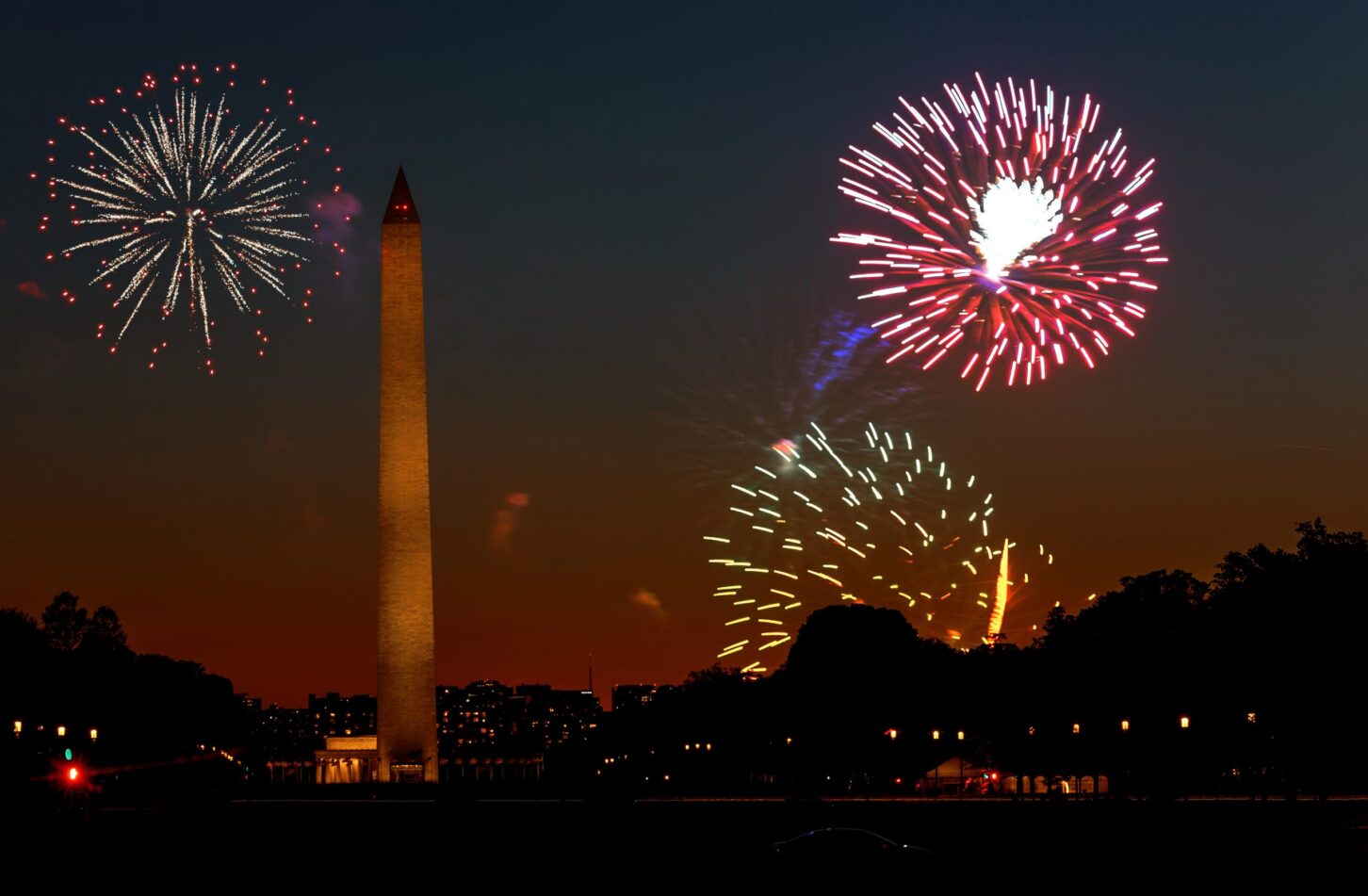
National holidays are treasured occasions, and not only because it means a day off (for many of us). Most of these holidays bear a certain, obvious solemnity of purpose: Memorial Day. Veterans Day. Thanksgiving. And arguably the highest of holidays on America’s secular calendar, Independence Day.
This year’s celebration arrives amid partisan bickering for, what, the second year in a row? The tenth? The fiftieth? Try the two hundred forty-fifth.
The Founding Fathers were famously afraid of factions. Yet they wasted no time falling into them.
We think of George Washington as larger than life – “first in the hearts of his countrymen.” But within months of the Declaration of Independence, rivals schemed to unseat him as commander-in-chief of the Continental Army. One of his closest confidants, Joseph Reed, secretly wrote of Washington’s shortcomings in November 1776 to one of those jockeying for the top position, Gen. Charles Lee.
“This blunt message suggested that Washington’s personal staff had lost faith in him and viewed him as a vacillating leader,” biographer Ron Chernow writes in “Washington: A Life.” Reed encouraged Lee’s ambitions: “as soon as the season will admit, I think yourself and some others should go to Congress and form the plan of the new army.”
Washington inadvertently intercepted the missive; far from firing Reed, the general talked Reed into revoking his resignation over the incident. Several months later, Chernow writes, Washington finally “sent Reed a conciliatory letter. He wasn’t a man who rushed to forgive, but he didn’t hold grudges either.” (Such forbearance is no doubt a taller task in our age of 24/7, social media punditry.)
Lee he handled differently, in part because Lee kept defying his orders. Washington, Chernow writes, “began a low-key campaign to discredit Lee in the eyes of Congress.” He needn’t have bothered: Mere weeks after the Reed incident, just before the army’s Christmas crossing of the Delaware River, Lee was captured by British troops at a New Jersey inn while “enjoying the company of a woman of easy virtue.”
The criticisms of Washington weren’t limited to his inner circle. A pamphleteer declared Americans “guilty of idolatry in making a man their God.” A member of the First Continental Congress, the Philadelphia physician Benjamin Rush, lamented that Washington had been “outgeneralled and twice beaten.” Rush favored the recently victorious Gen. Horatio Gates. No less than John Adams agreed, writing Rush that if Washington had won the battles, “idolatry and adulation would have been unbounded, so excessive as to endanger our liberties.”
So it went through much of the war. Washington of course went on to lay down his sword with the war won, became the first president only reluctantly, and set an unexpected precedent by leaving office after two terms. That goes to show the wags don’t always have the full measure of a man.
But divisiveness did not ebb. Washington increasingly found himself at odds with two famous fellow Virginians who early in his presidency were close advisers: Thomas Jefferson and James Madison. These so-called Republicans were particularly vile toward one of his closest Federalist colleagues, Alexander Hamilton – and Hamilton toward them.
Newspapers were created by each side just to attack the other. Nor were these idle insults. When a Republican newspaper “bitterly attacked the Federalist government for slyly promoting monarchy and aristocracy and undermining republicanism, Hamilton … labeled (Jefferson) an intriguing incendiary plotting to destroy the Constitution and the authority of the national government,” historian Gordon S. Wood writes in “Empire of Liberty.”
All of this, within 16 years of independence. Yet, the nation survived. Power passed not only from the could-be king, Washington, to Adams but later to another faction for the first time, when Jefferson was elected president.
On it went, and on it goes: both the factiousness and, in spite of it, the American experiment. We’re a nation of independent minds, yet we’re still together. That’s something to celebrate this Independence Day.
